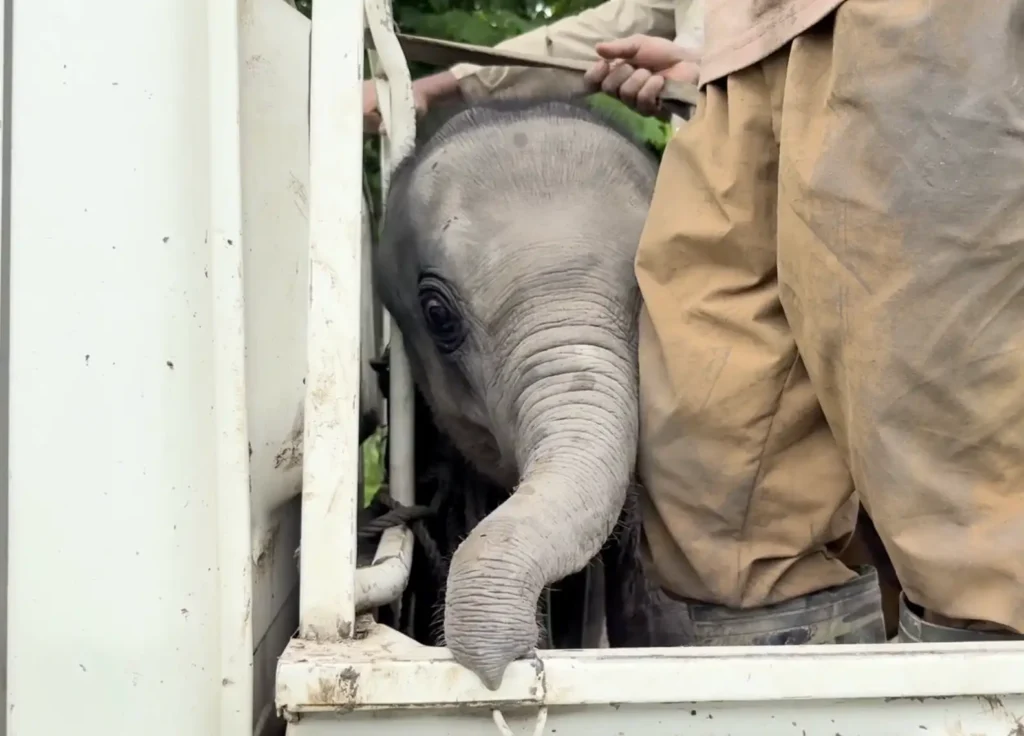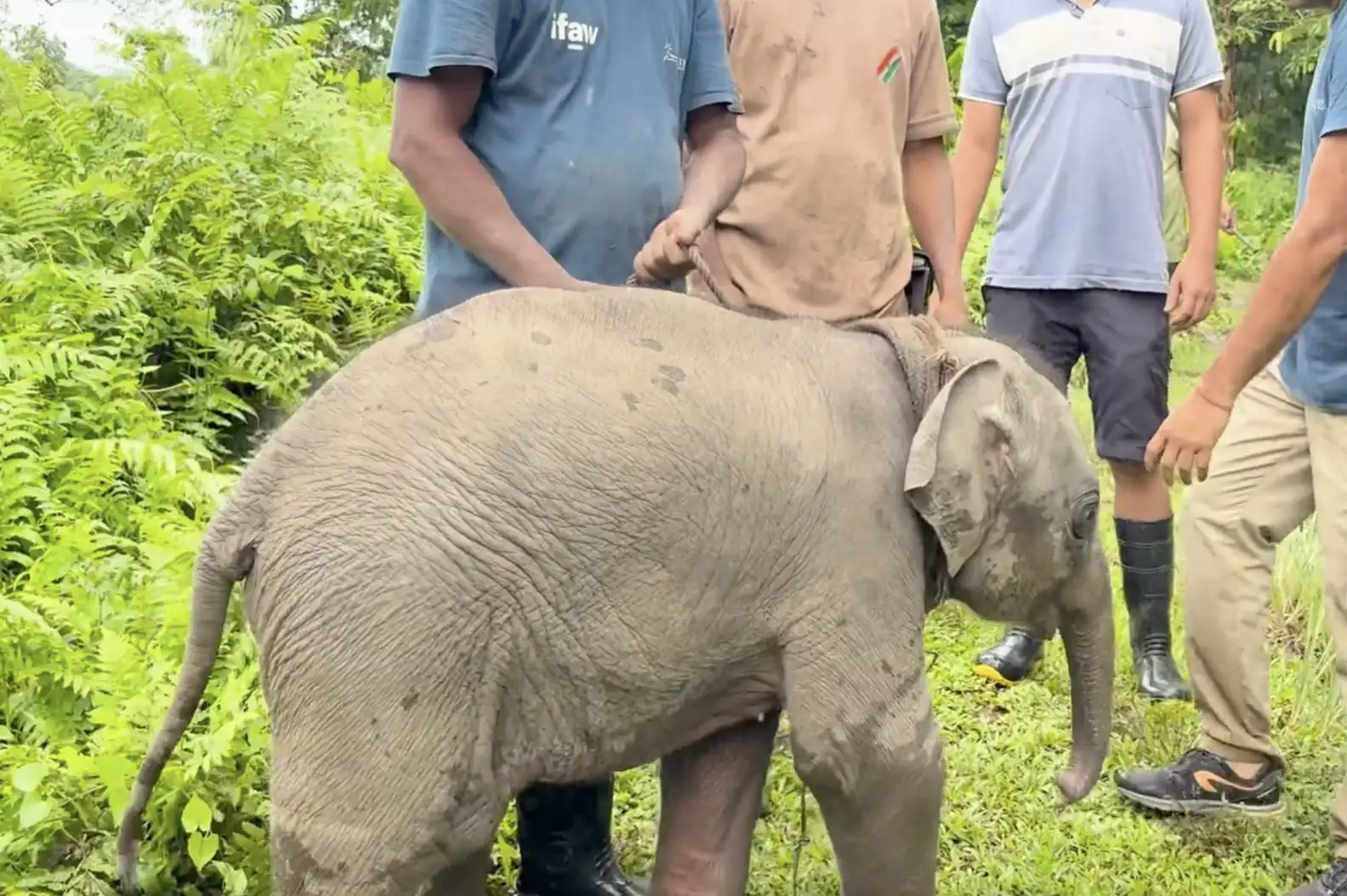He looked so worried 😢
Earlier this month in Assam, India, a herd of wild elephants was making its way past a village when the unthinkable happened — an 8-week-old calf was accidentally left behind.
Separated from his mother and the safety of his herd, the tiny elephant panicked. But help was on the way.
Soon after, a team from the Wildlife Trust of India’s Centre for Wildlife Rehabilitation and Conservation (CWRC), along with local wildlife officials, rushed to the scene. Their urgent mission: reunite the distressed baby with his equally anxious mother.

After confirming that the calf was in good health, the team sprang into action. They tracked the trail left by the elephant herd through the forest and carefully loaded the young calf into a small truck to help close the distance.
Once they arrived at a forest clearing where the herd was believed to be nearby, the team took a crucial step — covering the baby in elephant dung to mask any human scent, giving him the best chance of being accepted back by his mother.
Then came the moment everyone was waiting for.
“Soon we heard the rumbles coming from the forest and allowed the captive elephants to take the lead,” said Dr. Bhaskar Choudhury, head veterinarian at CWRC, in a release. “The female, an 8.5-foot-tall individual, had emerged from the woods and came to a halt before the calf. She paused briefly, and then the two walked back into the forest together.”
It was the joyful ending everyone had hoped for — a mother and baby, reunited thanks to swift, compassionate action.
This rescue is just one example of the life-saving work being done by CWRC. Since its founding in 2002, the center has rehabilitated more than 5,900 animals and participated in countless reunions just like this one — moments where compassion and science meet to give wildlife a second chance.
